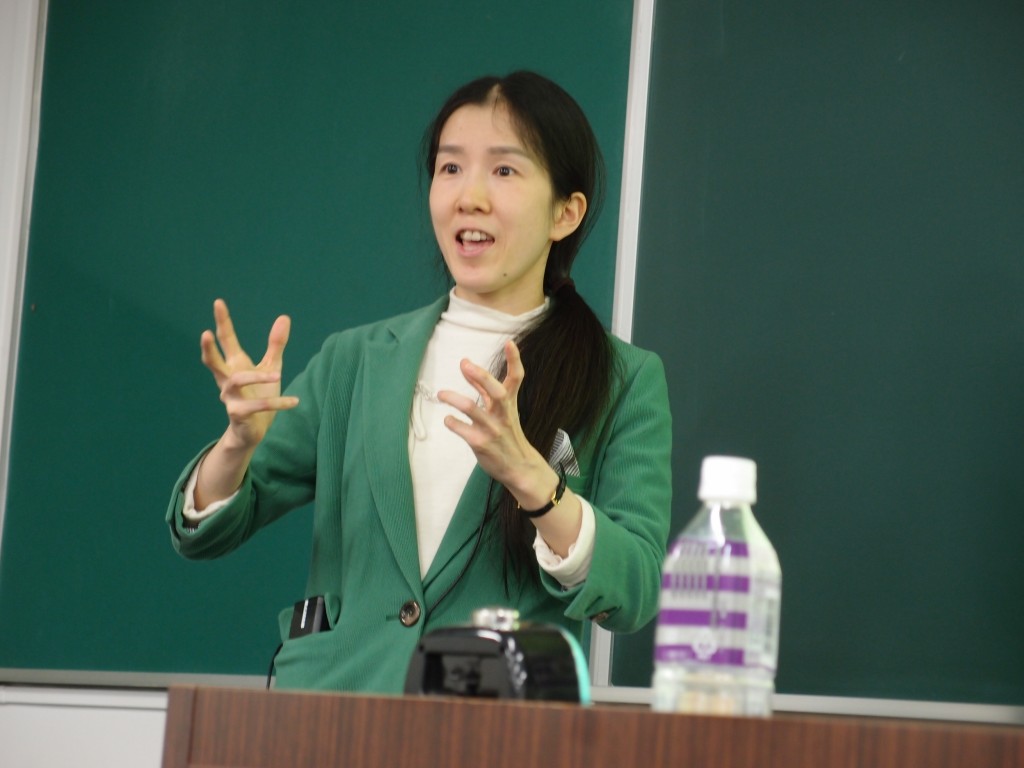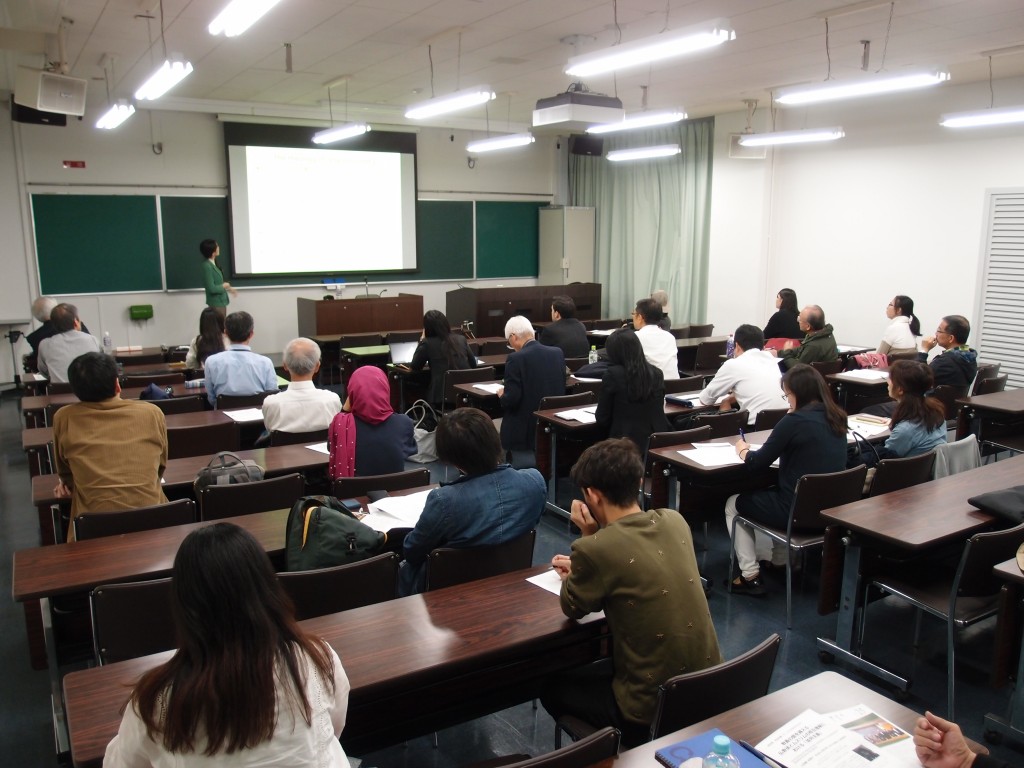Center for Interdisciplinary Study of Monotheistic Religions(CISMOR)Doshisha University
> Public Lectures > 【For Students and Academics】Overcoming the Doctrinal Gap: Parallelism in Contemporary Buddhist-Muslim PerceptionsPublic Lectures
12th CISMOR Seminar
【For Students and Academics】Overcoming the Doctrinal Gap: Parallelism in Contemporary Buddhist-Muslim Perceptions
| Date: |
2017/10/27 15:00-16:30 |
|---|---|
| Place: | Room S34, Shisei-kan, Imadegawa Campus, Doshisha university |
| Lecture: | Kieko Obuse (Visiting Scholar, Kobe City University of Foreign Studies) |
| Summary: | |
|
In the beginning of her talk on Buddhist-Muslim relations, Professor Obuse emphasized that in South Asia and South East Asia (Sri Lanka, Myanmar and Thailand) a new research is in the process of emerging which focuses on political and socio-economic factors that play significant roles in religious conflicts in the region. By focusing on doctrinal issues, Obuse attempted in her research to situate how the Buddhist and Muslim communities tried to understand the “religious other” that coexist. Obuse analyzed the general perceptions of both religions succinctly. Generally speaking, Muslims feel that Buddhism lacks a supreme deity as well as the concept of the creator itself. “Idolatry” and “polytheism” are common perceptions that come up while Buddha Himself is thought of as one of the prophets. On the other hand, Islam is perceived by Buddhists as exhibiting the intolerance that is common among monotheistic religions. All the same, Buddhists sense the strong sense of unity among believers. Due to these gaps in perceptions in doctrinal understanding, the dialogue between the two religions had been stifled. However, in recent years among the scholars of both religions intellectuals are shifting their focus to “parallelism,” which emphasizes the commonality of religious concepts and doctrine. This is a significant departure from the traditional perceptions of “exclusivism,” “inclusivism” and “pluralism.” The special characteristics of each method was explained as follows. “Exclusivism” emphasizes the idea that only its tradition is capable of providing salvation. Its advocates are convinced that other believers cannot access the truth. In the case of “inclusivism,” one’s own tradition can offer the path to salvation, but other traditions can also access the truth in a less than perfect form through alternative approaches. In “pluralism,” the truth is experienced by people around the world in many ways. Religions manifest the truth in myriad ways, so they can be equally valid. In the past there was a sense that adopting theology that considers multiple religions was not popular. It did not seem to be in accord with Buddhist theology either. In response to this kind of criticism, “parallelism” focused on the doctrinal parallels involving two or more religions. It resembles pluralism in that it treats various religions from an equal standpoint, but it does not make judgements about what each religion perceives to be the pursuit of truth. In this sense it belongs to an entirely separate category explained Obuse. At the end of the talk, Obuse compared the Muslim understanding of God to the Indonesian Buddhist (Mahayana) concept of the Ādi‐buddha. Based on the research of Alexander Berzin, in Indonesia the Ādi‐buddha is revered as the highest deity, prophet and is accepted by the majority religions outside of Islam. The deity is also regarded as the source of all things in Indonesia, so it could be argued that Buddhist followers accept the notion of God. Furthermore, Obuse pointed out that Allah is not personified and is ultimately unknown in Islam. Since He cannot be expressed through words, the idea closely resembles Buddhist notion of Ādi‐buddh which cannot be imagined or expressed through human language. Obuse explained that these notions transcended religious boundaries. Translated by Jonathan Augustine (Ryukoku University) |
|
|
*The seminar series is open for students and academics. *Lecuter in English. |
|

